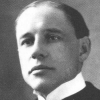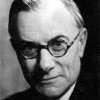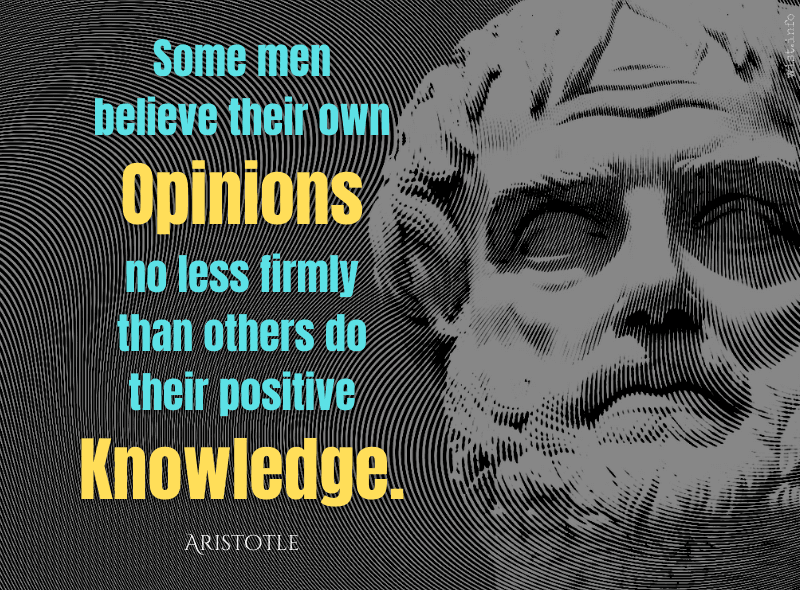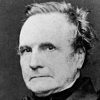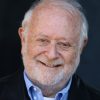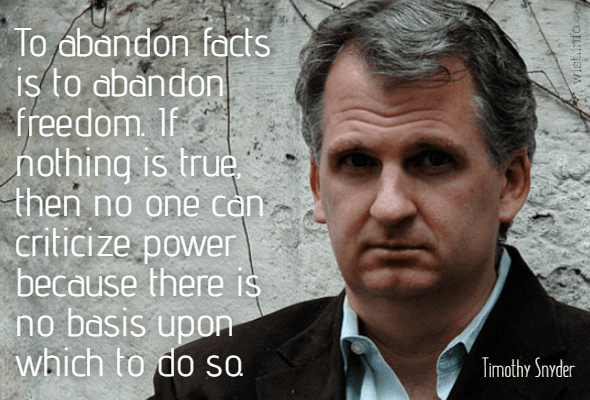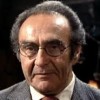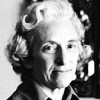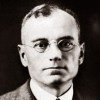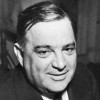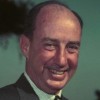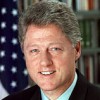Pedantry crams our heads with learned lumber, and takes out our brains to make room for it.
Charles Caleb "C. C." Colton (1780-1832) English cleric, writer, aphorist
Lacon: Or, Many Things in Few Words, Vol. 2, § 20 (1822)
(Source)
Quotations about:
facts
Note not all quotations have been tagged, so Search may find additional quotes on this topic.
A bitter-tongued parent cannot teach respect for facts. Truth for its own sake can be a deadly weapon in family relations. Truth without compassion can destroy love. Some parents try too hard to prove exactly how, where and why they have been right. This approach will bring bitterness and disappointment. When attitudes are hostile, facts are unconvincing.
Haim Ginott (1922-1973) Israeli-American school teacher, child psychologist, psychotherapist [b. Haim Ginzburg]
Between Parent and Teenager, ch. 2 “Rebellion and Response” (1969)
(Source)
Sometimes mis-cited to the earlier Between Parent and Child (1965).
Nothing in education is so astonishing as the amount of ignorance it accumulates in the form of inert facts.
Henry Adams (1838-1918) American journalist, historian, academic, novelist
The Education of Henry Adams, ch. 25 (1907)
(Source)
Study the historian before you begin to study the facts. This is, after all, not very abstruse. It is what is already done by the intelligent undergraduate who, when recommended to read a work by that great scholar Jones of St. Jude’s, goes round to a friend at St. Jude’s to ask what sort of chap Jones is, and what bees he has in his bonnet. When you read a work of history, always listen out for the buzzing. If you can detect none, either you are tone deaf or your historian is a dull dog. The facts are really not at all like fish on the fishmonger’s slab. They are like fish swimming about in a vast and sometimes inaccessible ocean; and what the historian catches will depend partly on chance, but mainly on what part of the ocean he chooses to fish in and what tackle he chooses to use – these two factors being, of course, determined by the kind of fish he wants to catch. By and large, the historian will get the kind of facts he wants. History means interpretation.
E. H. Carr (1892-1982) British historian, journalist, international relations theorist [Edward Hallett "Ted" Carr]
What Is History?, ch. 1 (1961)
(Source)
What could I do! Facts are such horrid things!
Jane Austen (1775-1817) English author
Lady Susan, Letter 32 “Mrs. Johnson to Lady Susan” (1794, pub 1871)
(Source)
“All stories are true,” Skarpi said. “But this one really happened, if that’s what you mean.” He took another slow drink, then smiled again, his bright eyes dancing. “More or less. You have to be a bit of a liar to tell a story the right way. Too much truth confuses the facts. Too much honesty makes you sound insincere.”
Patrick Rothfuss (b. 1973) American author
The Name of the Wind, ch. 26 “Lanre Turned” (2007)
(Source)
Oh child, words well spoken might be false,
and with the beauty of words, might conquer truth;
yet this is not the surest test, that is character
and right; he who conquers with his fluency,
he is clever, but I hold facts mightier than words, always.[ὦ παῖ, γένοιντ᾽ἂν εὖ λελεγµένοι λόγοι
ψευδεῖς, ἐπῶν δὲ κάλλεσιν νικῷεν ἂν
τἀληθές· ἀλλ᾽οὐ τοῦτο τἀκριβέστατον,
ἀλλ᾽ἡ φύσις καὶ τοὐρθόν· ὃς δ᾽εὐγλωσσίᾳ
νικᾷ, σοφὸς µέν, ἀλλ᾽ἐγὼ τὰ πράγµατα
κρείσσω νοµίζω τῶν λόγων ἀεί ποτε.]Euripides (485?-406? BC) Greek tragic dramatist
Antiope [Αντιοπη], frag. 206 (Kannicht) [Antiope/ΑΝΤΙΟΠΗ?] (c. 410 BC) [tr. Will (2015)]
(Source)
(Source (Greek)). TGF frag. 205.
Some men believe their own Opinions no less firmly than others do their positive Knowledge.
Aristotle (384-322 BC) Greek philosopher
Nicomachean Ethics [Ἠθικὰ Νικομάχεια], Book 7, ch. 3 (7.3) (c. 325 BC) [tr. Chase (1847)]
(Source)
Alternate translations:
Some men put no less faith in their own uncertified opinions than do others in the verified truths of science.
[tr. Williams (1869), sec. 127]
For some people are as strongly convinced of their opinions as others of their knowledge.
[tr. Welldon (1892)]
Some people have just as strong a belief in their mere opinions as others have in what they really know.
[tr. Peters (1893), 7.3.4]
Some men are no less convinced of what they think than others of what they know.
[tr. Ross (1908)]
Some men are just as firmly convinced of what they opine as others are of what they know.
[tr. Rackham (1934)]
Some people have no less conviction about that they believe than others do about what they know scientifically.
[tr. Reeve (1948)]
Some men are just as sure of the truth of their opinions as others are of what they know.
[tr. Thomson (1953)]
Some men are no less convinced of their opinions about things than others of the things they know.
[tr. Apostle (1975)]
There are some people who have no less confidence than others hav ein what they know.
[tr. Thomson/Tredennick (1976)]
Some are no less convinced of what they opine about than are other people of what they know.
[tr. Bartlett/Collins (2011)]
For with the truth, all the given facts harmonize; but with what is false, the truth soon hits a wrong note.
[τῷ μὲν γὰρ ἀληθεῖ πάντα συνᾴδει τὰ ὑπάρχοντα, τῷ δὲ ψευδεῖ ταχὺ διαφωνεῖ τἀληθές.]
Aristotle (384-322 BC) Greek philosopher
Nicomachean Ethics [Ἠθικὰ Νικομάχεια], Book 1, ch. 8 (1.8, 1098b.11) (c. 325 BC) [tr. Bartlett/Collins (2011)]
(Source)
(Source (Greek)). Alternate translations:
With what is true all things which really are are in harmony, but with that which is false the true very soon jars.
[tr. Chase (1847), ch. 6]
For with a true theory all facts agree, while with what is false truth is quickly found to conflict.
[tr. Williams (1869)]
For while all, experience harmonizes with the truth, it is never long before truth clashes with falsehood.
[tr. Welldon (1892)]
For all experience harmonizes with a true principle, but a false one is soon found to be incompatible with the facts.
[tr. Peters (1893)]
For with a true view all the data harmonize, but with a false one the facts soon clash.
[tr. Ross (1908)]
For if a proposition be true, all the facts harmonize with it, but if it is false, it is quickly seen to be discordant with them.
[tr. Rackham (1934)]
For all the data are in tune with a true view, whereas they soon clash with a false one.
[tr. Reeve (1948)]
For all things which belong to it are in harmony with a true [definition of it], but truth is soon bound to clash with a false [definition of it].
[tr. Apostle (1975)]
Because if a statement is true all the data are in harmony with it, while if it is false they soon reveal a discrepancy.
[tr. Thomson/Tredennick (1976)]
For all the data harmonize with the truth, but soon clash with falsity.
[tr. Crisp (2000)]
A good rule for discussion is to use hard facts and a soft voice.
Dorothy Sarnoff (1914-2008) American opera singer, actress, image consultant
Speech Can Change Your Life (1970)
(Source)
“What is truth?” Sometimes people ask this question because they wish to do nothing. Generic cynicism makes us feel hip and alternative even as we slip along with our fellow citizens into a morass of indifference. It is your ability to discern facts that makes you an individual, and our collective trust in common knowledge that makes us a society.
Timothy Snyder (b. 1969) American historian, author
On Tyranny: Twenty Lessons from the Twentieth Century, ch. 10 (2017)
(Source)
The nationalist not only does not disapprove of atrocities committed by his own side, but he has a remarkable capacity for not even hearing about them. […] In nationalist thought there are facts which are both true and untrue, known and unknown. A known fact may be so unbearable that it is habitually pushed aside and not allowed to enter into logical processes, or on the other hand it may enter into every calculation and yet never be admitted as a fact, even in one’s own mind.
George Orwell (1903-1950) English writer [pseud. of Eric Arthur Blair]
“Notes on Nationalism” (May 1945)
(Source)
Political or military commentators, like astrologers, can survive almost any mistake, because their more devoted followers do not look to them for an appraisal of the facts but for the stimulation of nationalistic loyalties.
George Orwell (1903-1950) English writer [pseud. of Eric Arthur Blair]
“Notes on Nationalism” (May 1945)
(Source)
Nor let it be feared that erroneous deductions may be made from such recorded facts: the errors which arise from the absence of facts are far more numerous and more durable than those which result from unsound reasoning respecting true data.
Charles Babbage (1791-1871) English mathematician, computer pioneer, philosopher
On the Economy of Machinery and Manufactures, ch. 7 (1832)
(Source)
Sometimes paraphrased, "Errors using inadequate data are much less than those using no data at all."
The problem with evidence is it doesn’t always support your opinion.
Stephen Colbert (b. 1964) American political satirist, writer, comedian
Interview with Ron Suskind (13 Jul 2006)
(Source)
Resolutions cannot nullify the truths of the multiplication table.
James A. Garfield (1831-1881) US President (1881), lawyer, lay preacher, educator
“The Currency,” Speech, House of Representatives (15 May 1868)
(Source)
A favorite phrase of Garfield's regarding the dangers of inflation, e.g., "I will not vote against the truths of the multiplication table" (Letter to Harmon Austin (4 Feb 1874)).
Protestant theology has restricted the meaning of Faith too much — explaining it as subjective assurance or trust. It has sometimes been assumed that this attitude of throwing oneself into the arms of Divine grace may dispense us from the duty of forming rational convictions, and of directing our lives in accordance with them. Faith and fact come to be divorced. Either they are supposed to be directed to different objects, or we are told that the same proposition may be true for faith and false for science — in which case we are on a quicksand, and are driven to play fast and loose with veracity.
William Ralph Inge (1860-1954) English prelate [Dean Inge]
Assessments and Anticipations, ch. 7 “Faith” (1929)
(Source)
And I have no desire to get ugly,
But I cannot help mentioning that the door of a bigoted mind opens outwards so that the only result of the pressure of facts upon it is to close it more snugly.
Ogden Nash (1902-1971) American poet
“Seeing Eye to Eye is Believing,” Good Intentions (1942)
(Source)
We are never so certain of our knowledge as when we’re dead wrong.
Adair Lara (b. 1952) American writer, columnist, teacher
“A Lot of Knowledge Is Dangerous, Too,” San Francisco Chronicle (9 Oct 1997)
(Source)
When the heavy-handed dogmatist requires a categorical assent to the literal truth of the miraculous, in exactly the same sense in which physical facts are true, a tension between faith and reason cannot be avoided.
William Ralph Inge (1860-1954) English prelate [Dean Inge]
“Bishop Gore and the Church of England” (1908), Outspoken Essays: First Series (1911)
(Source)
Never let the facts alone obscure the truth of your narrative. The truth is what your life really felt like.
Maya Angelou (1928-2014) American poet, memoirist, activist [b. Marguerite Ann Johnson]
“The Art of Fiction,” Paris Review, #116, Interview with George Plimpton (1990)
(Source)
I look at some of the great novelists, and I think the reason they are great is that they’re telling the truth. The fact is they’re using made-up names, made-up people, made-up places, and made-up times, but they’’re telling the truth about the human being — what we are capable of, what makes us lose, laugh, weep, fall down, and gnash our teeth and wring our hands and kill each other and love each other.
Maya Angelou (1928-2014) American poet, memoirist, activist [b. Marguerite Ann Johnson]
“The Art of Fiction,” Paris Review, #116, Interview with George Plimpton (1990)
(Source)
Although endlessly brooding on power, victory, defeat, revenge, the nationalist is often somewhat uninterested in what happens in the real world. What he wants is to feel that his own unit is getting the better of some other unit, and he can more easily do this by scoring off an adversary than by examining the facts to see whether they support him.
George Orwell (1903-1950) English writer [pseud. of Eric Arthur Blair]
“Notes on Nationalism” (1945)
(Source)
Believe in truth. To abandon facts is to abandon freedom. If nothing is true, then no one can criticize power because there is no basis upon which to do so. If nothing is true, then all is spectacle. The biggest wallet pays for the most blinding lights.
No fact in the world is instant, infinitesimal and ultimate, a single mark. There are, I hold, no atomic facts. In the language of science, every fact is a field — a crisscross of implications, those that lead to it and those that lead from it. We condense the laws around concepts. Science takes its coherence, its intellectual and imaginative strength together, from the concepts at which its laws cross, like knots in a mesh.
So the universe is not quite as you thought it was. You’d better rearrange your beliefs, then. Because you certainly can’t rearrange the universe.
Isaac Asimov (1920-1992) Russian-American author, polymath, biochemist
Nightfall (1990) [with Robert Silverberg]
(Source)
Wooden-headedness consists of assessing a situation in terms of preconceived, fixed notions while ignoring or rejecting any contrary signs. It is acting according to wish while not allowing oneself to be confused by the facts.
Left to themselves, the facts do not speak; left to themselves they do not exist, not really, since for all practical purposes there is no fact until some one affirms it.
Carl L. Becker (1873-1945) American historian
“Everyman His Own Historian” (3), speech, American Historical Association, Minneapolis (29 Dec 1931)
(Source)
To establish the facts is always in order, and is indeed the first duty of the historian; but to suppose that the facts, once established in all their fullness, will “speak for themselves” is an illusion.
Carl L. Becker (1873-1945) American historian
“Everyman His Own Historian” (3), speech, American Historical Association, Minneapolis (29 Dec 1931)
(Source)
Crafty men condemn studies; simple men admire them; and wise men use them.
Francis Bacon (1561-1626) English philosopher, scientist, author, statesman
“Of Studies,” Essays, No. 50 (1625)
(Source)
We ought in fairness to fight our case with no help beyond the bare facts: nothing, therefore, should matter except the proof of those facts. Still, as has been already said, other things affect the result considerably, owing to the defects of our hearers.
[δίκαιον γὰρ αὐτοῖς ἀγωνίζεσθαι τοῖς πράγμασιν, ὥστε τἆλλα ἔξω τοῦ ἀποδεῖξαι περίεργα ἐστίν: ἀλλ᾽ ὅμως μέγα δύναται, καθάπερ εἴρηται, διὰ τὴν τοῦ ἀκροατοῦ μοχθηρίαν.]
Aristotle (384-322 BC) Greek philosopher
Rhetoric [Ῥητορική; Ars Rhetorica], Book 3, ch. 1, sec. 5 (3.1.5) / 1404a (350 BC) [tr. Roberts (1924)]
(Source)
On style vs. substance in shaping judgment. (Source (Greek)). Alternate translations:
For justice would be to contend with the facts only, so that every thing else beside the mere demonstration is superfluous; nevertheless, it [style] is of great influence, as has been said, owing to the corruption of the hearers.
[Source (1847)]
Our facts ought to be our sole weapons, making everything superfluous which is outside the proof; owing to the infirmities of the hearer, however, style, as we have said, can do much.
[tr. Jebb (1873)]
For justice should consist in fighting the case with the facts alone, so that everything else that is beside demonstration is superfluous; nevertheless, as we have just said, it [style] is of great importance owing to the corruption of the hearer.
[tr. Freese (1926)]
Although [...] in justice, litigants should appeal only to the facts to contest the case, so that everything apart from demonstration is superfluous, it remains the case, as I have aid, that, thanks to the audience's moral weakness, delivery is very effective.
[tr. Waterfield (2018)]
All generous minds have a horror of what are commonly called “facts.” They are the brute beasts of the intellectual domain.
You will find that the truth is often unpopular and the contest between agreeable fancy and disagreeable fact is unequal. For, in the vernacular, we Americans are suckers for good news.
Adlai Stevenson (1900-1965) American diplomat, statesman
Speech (1958-06-09), Commencement, Michigan State University
(Source)
DREAM: Things need not have happened to be true. Tales and dreams are the shadow-truths that will endure when mere facts are dust and ashes, and forgot.
Neil Gaiman (b. 1960) British author, screenwriter, fabulist
Sandman, Book 3. Dream Country, # 19 “A Midsummer Night’s Dream” (1990)
(Source)
Great virtues may draw attention from defects, they cannot sanctify them. A pebble surrounded by diamonds remains a common stone, and a diamond surrounded by pebbles is still a gem. No one should attempt to refute an argument by pronouncing the name of some man, unless he is willing to adopt all the ideas and beliefs of that man. It is better to give reasons and facts than names. An argument should not depend for its force upon the name of its author. Facts need no pedigree, logic has no heraldry, and the living should not awed by the mistakes of the dead.
Robert Green Ingersoll (1833-1899) American lawyer, agnostic, orator
“The Great Infidels” (1881)
(Source)
The problem with ideology is, if you’ve got an ideology, you’ve already got your mind made up. You know all the answers and that makes evidence irrelevant and arguments a waste of time. You tend to govern by assertion and attacks.
The possession of facts is knowledge; the use of them is wisdom; the choice of them, education. Knowledge is not power but riches, and like them, has its value in spending.
The degree of one’s emotions varies inversely with one’s knowledge of the facts — the less you know the hotter you get.
Facts are stubborn things; and whatever may be our wishes, our inclinations, or the dictates of our passions, they cannot alter the state of the facts and evidence.



